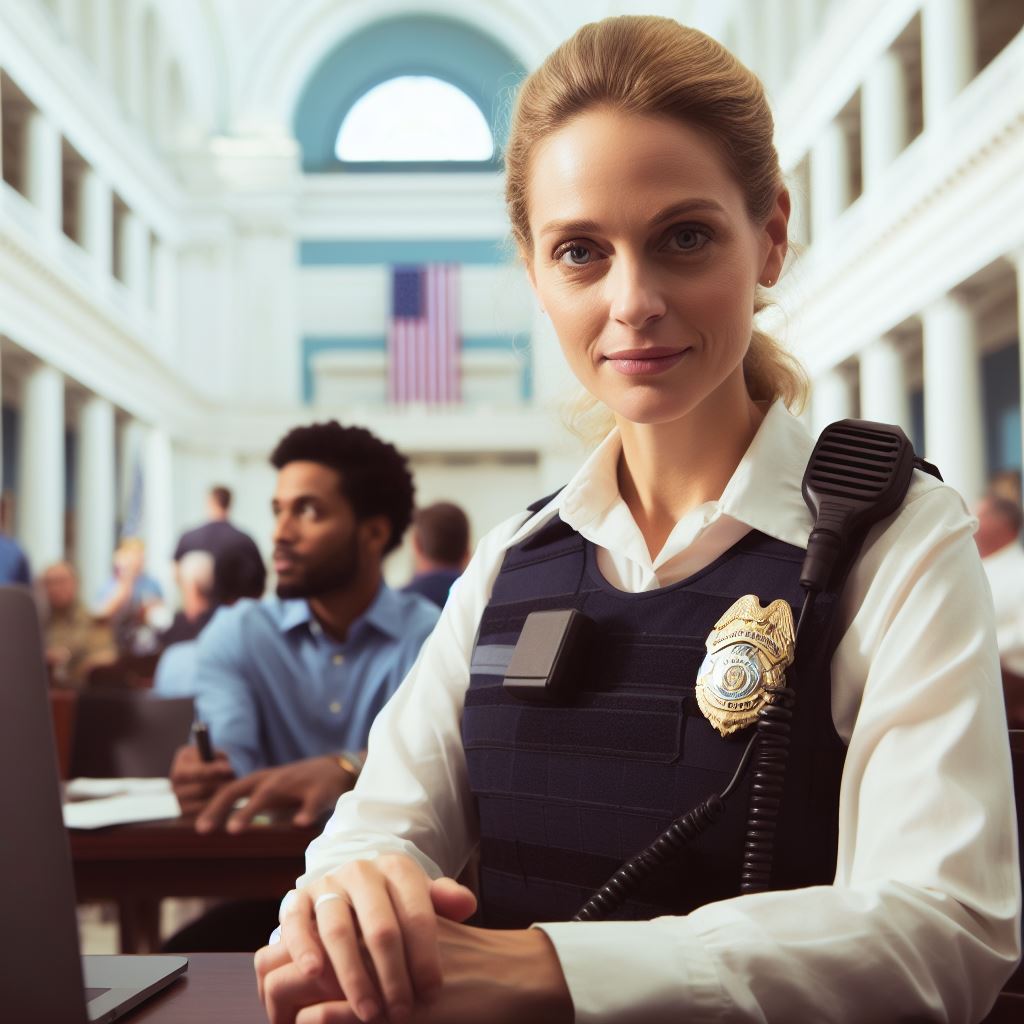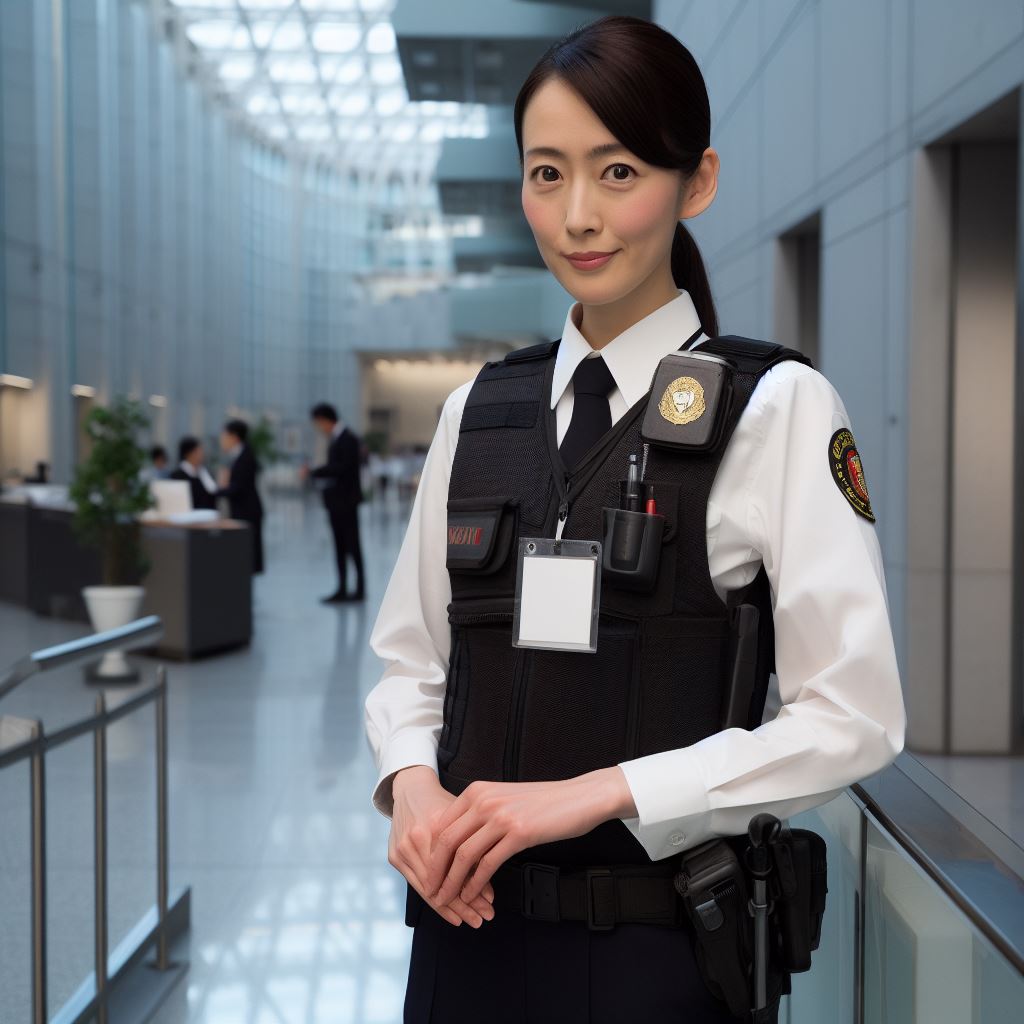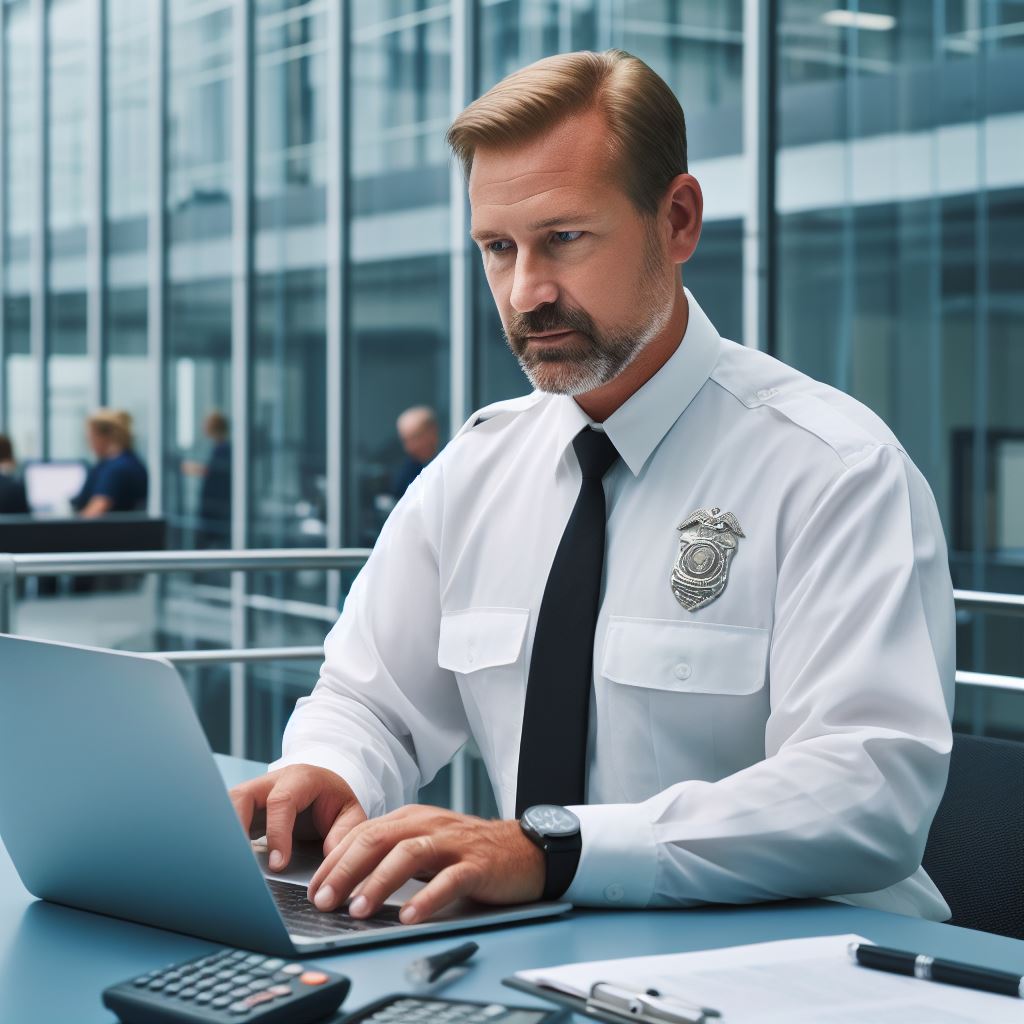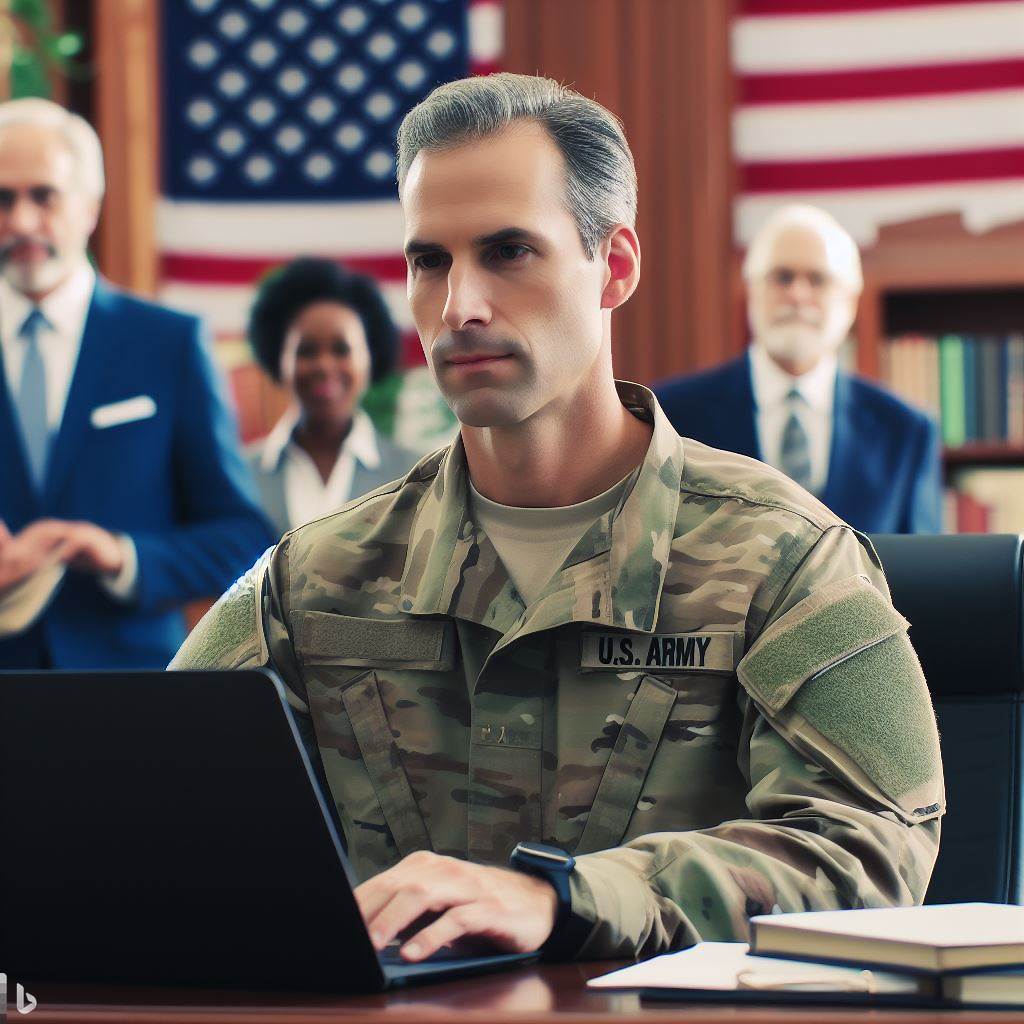Introduction
Physical fitness standards and tips for security Guard is crucial for security guards as it directly impacts their ability to perform their duties effectively.
This blog post will provide an overview of the importance of physical fitness for security guards and what will be covered in the rest of the post.
Maintaining physical fitness is essential for security guards to excel in their demanding jobs.
This is because their roles often require them to be physically fit and capable of responding to emergencies quickly and efficiently.
In this blog post, we will discuss the physical fitness standards that security guards must meet.
These standards ensure that they are physically capable of performing various tasks such as patrolling, apprehending suspects, and handling emergencies.
Additionally, we will provide tips and strategies to help security guards improve their physical fitness.
These tips will include incorporating regular exercise routines, proper nutrition, and adequate rest into their daily lives.
Furthermore, we will explore the benefits of physical fitness for security guards.
These benefits include increased stamina, strength, and agility, which are crucial when responding to unexpected situations and maintaining a safe environment.
Lastly, we will address common challenges that security guards may face when trying to prioritize physical fitness.
These challenges can range from long working hours to the temptation of unhealthy habits, and we will provide practical solutions to overcome them.
By the end of this blog post, security guards will have a clear understanding of why physical fitness matters and how they can prioritize their health and well-being to excel in their roles.
Physical fitness standards for U.S. security guards
Description of the physical fitness requirements set by law enforcement agencies
- Cardiovascular Endurance: Security guards must have good cardiovascular fitness to endure long hours on duty.
- Strength and Endurance: They need to possess adequate strength and endurance to handle physical confrontations.
- Agility and Coordination: Quick reflexes, agility, and coordination are essential for effective response during emergencies.
- Flexibility: Security guards should have good flexibility to perform their duties efficiently without any limitations.
- Body Composition: Maintaining a healthy body composition is crucial to ensure optimum performance on the job.
Physical fitness tests commonly used for security guard applicants
- 1.5-Mile Run: This test measures cardiovascular fitness and is used to evaluate endurance levels.
- Push-ups: Evaluates upper body strength and endurance, usually done in a given time frame.
- Sit-ups: Tests core strength and endurance, also typically performed within a set time limit.
- Obstacle Course: Assesses agility, coordination, and overall physical abilities, simulating real-life scenarios.
- Body Composition Analysis: Measures body fat percentage through methods like skinfold calipers or bioelectrical impedance.
Tips to meet physical fitness standards for aspiring security guards
- Regular Exercise Routine: Engage in a well-rounded fitness program that includes cardio, strength, and flexibility exercises.
- Cardiovascular Training: Incorporate activities like running, cycling, or swimming to improve endurance.
- Strength Training: Focus on weightlifting or bodyweight exercises to build strength in major muscle groups.
- Flexibility Exercises: Incorporate stretching routines to improve overall flexibility and prevent injuries.
- Balanced Diet: Maintain a healthy diet rich in lean proteins, whole grains, fruits, and vegetables for optimal performance.
- Hydration: Stay well-hydrated before, during, and after workouts to avoid dehydration and improve physical abilities.
- Rest and Recovery: Allow enough time for rest and recovery to prevent overexertion and promote muscle repair.
- Practice Specific Skills: Train for specific physical tasks required in security guard duties, such as defensive tactics.
- Mental Conditioning: Develop mental resilience and focus through techniques like meditation or visualization.
- Seek Professional Guidance: Consult with fitness trainers or professionals to create personalized training programs.
Basically, physical fitness is an integral aspect of being a U.S. security guard. Law enforcement agencies have established specific fitness standards to ensure guards can effectively handle their duties.
By understanding these requirements and following the given tips, aspiring security guards can better prepare themselves to meet and exceed the physical demands of their profession.
Benefits of physical fitness for security guards
Physical fitness plays a crucial role in the performance and efficiency of security guards. Here are some benefits of staying physically fit in the security industry:
Improved job performance and efficiency
Physical fitness significantly enhances a security guard’s ability to perform their duties effectively.
Fit guards have better stamina, agility, and overall physical strength to handle demanding tasks and emergencies efficiently.
Enhanced ability to handle stressful situations
Security guards often face highly stressful and challenging situations that require quick thinking and action.
Regular exercise improves mental resilience, enabling guards to think clearly and make better decisions during high-pressure scenarios.
Decreased risk of workplace injuries
Physical fitness helps prevent workplace injuries by improving balance, flexibility, and coordination.
Strong muscles and bones reduce the likelihood of accidents and allow guards to move swiftly and react quickly in unpredictable situations.
Increased alertness and focus
Regular exercise stimulates the brain and promotes the production of endorphins, which improves mood, alertness, and overall cognitive function.
Fit security guards are more focused, attentive, and better equipped to assess and analyze potential risks.
Improved communication and teamwork
Physical fitness fosters better communication and teamwork among security guards.
Engaging in group exercises or team sports helps build trust, camaraderie, and cooperation between team members, enhancing overall effectiveness and morale in the security team.
Enhanced emergency response capabilities
In times of crisis or emergencies, security guards must act swiftly and decisively.
An individual who is physically fit can respond faster to unexpected situations, ensuring a timely and appropriate response to mitigate risks and protect people and property.
Better public perception
A fit and healthy security guard often creates a positive impression among the public.
They are seen as capable, reliable, and trustworthy professionals who prioritize their own well-being and have the ability to keep others safe.
Tips for Maintaining Physical Fitness as a Security Guard:
- Regular exercise routine: Incorporate a balanced mix of cardiovascular exercises, strength training, and flexibility exercises into your weekly routine.
- Proper nutrition: Ensure you have a well-balanced diet that includes lean proteins, whole grains, fruits, vegetables, and plenty of water to fuel your body for optimal performance.
- Get enough rest: Allow your body enough time to recover and rejuvenate by getting an adequate amount of sleep each night.
- Stretching and warm-up exercises: Always warm up before starting any physical activity and cool down with stretching exercises to prevent muscle strain or injuries.
- Stay hydrated: Keep yourself well-hydrated throughout the day, especially during physically demanding tasks or warm weather conditions.
- Regular medical check-ups: Schedule regular check-ups to monitor your overall health and address any underlying issues promptly.
- Take breaks and manage stress: Remember to take short breaks during shifts to allow your body and mind to recharge. Practice stress-reducing techniques such as deep breathing or meditation to alleviate work-related stress.
By prioritizing physical fitness, security guards can not only excel in their job performance but also improve their overall well-being.
Incorporating these tips into their daily routines will help them maintain a higher level of fitness, leading to a safer and more efficient security force.
Read: Veterans Transitioning to Security Roles: A Guide for the U.S. Market

Tips for improving physical fitness
Incorporating regular exercise into daily routine
- Start by setting aside a specific time each day for physical activity.
- Choose activities that you enjoy and that get your heart rate up, such as jogging or swimming.
- Gradually increase the intensity and duration of your workouts to challenge your body and improve fitness.
- Try incorporating strength training exercises, such as weightlifting, to build muscle and improve overall fitness.
- Make sure to include a variety of activities to engage different muscle groups and prevent boredom.
Following a balanced diet to maintain optimal fitness levels
- Include a variety of fruits, vegetables, whole grains, and lean proteins in your diet.
- Avoid processed foods and sugary drinks, as they can hinder your fitness goals.
- Stay hydrated by drinking plenty of water throughout the day.
- Control portion sizes to ensure you are consuming the right amount of calories for your activity level and goals.
- Consider consulting a nutritionist to develop a personalized meal plan that suits your fitness needs.
Engaging in specific exercises to improve strength, endurance, and agility
- Incorporate strength training exercises, such as push-ups, squats, and lunges, to build muscle and increase overall strength.
- Include cardiovascular exercises, such as running or cycling, to improve endurance and cardiovascular health.
- Practice agility exercises, such as ladder drills or cone drills, to improve speed and agility.
- Consider incorporating flexibility exercises, such as yoga or Pilates, to improve range of motion and prevent injuries.
- Don’t forget to warm up before exercising and cool down afterward to prevent muscle strains and injuries.
By following these tips for improving physical fitness, U.S. security guards can ensure they are in top shape to handle the demands of their job.
Regular exercise, a balanced diet, and targeted exercises can contribute to overall fitness, strength, endurance, and agility, allowing security guards to perform their duties effectively and efficiently.
Remember, consistency is key, so make physical fitness a priority in your daily routine.
Transform Your Career Today
Unlock a personalized career strategy that drives real results. Get tailored advice and a roadmap designed just for you.
Start NowRead: Networking Opportunities for Security Professionals in the USA
Mental Preparation for Physical Fitness Tests
In order to successfully pass physical fitness tests, it is crucial for U.S. security guards to not only focus on their physical conditioning, but also on their mental preparation.
Having the right mindset and determination can greatly contribute to their overall success and performance.
Additionally, developing strategies to manage test-related stress and anxiety can further enhance their performance.
Here are some tips to help security guards mentally prepare for physical fitness tests:
Importance of Mindset and Determination
- Believe in Yourself: Having a positive mindset is essential. Believe that you can overcome any challenges during the test.
- Set Clear Goals: Define your fitness goals and have a clear vision of what you want to achieve. This will keep you motivated throughout the preparation process.
- Stay Committed: Remain dedicated to your training and consistently work towards improving your physical fitness. This determination will help you push through difficult moments during the test.
- Visualize Success: Imagine yourself successfully completing the physical fitness test. Visualizing positive outcomes will boost your confidence and mental readiness.
- Seek Support: Surround yourself with a supportive network of colleagues, friends, or family members who can motivate and encourage you throughout your preparation.
Strategies for Managing Test-Related Stress and Anxiety
- Develop a Study Plan: Organize your preparation by creating a study plan that includes both physical training and mental exercises.
- Practice Breathing Techniques: Deep breathing exercises can help reduce stress and anxiety. Incorporate them into your daily routine.
- Positive Self-Talk: Use positive affirmations to improve your confidence and self-belief. Repeat empowering statements to yourself.
- Visualize Relaxing Scenes: Take time to visualize calming and relaxing scenes to reduce stress and anxiety levels.
- Stay Present: Focus on the present moment during the physical fitness test. Avoid thinking about the outcome or potential failure.
- Control Your Thoughts: Be aware of negative thoughts and replace them with positive ones. Stay optimistic and believe in your abilities.
- Practice Mindfulness: Engage in mindfulness exercises to promote mental clarity and reduce stress. Stay mindful during your training sessions and the actual test.
By incorporating these mental preparation strategies into your physical fitness training, you can better prepare yourself for the challenges of the test.
Remember, your mindset and determination play a significant role in your success. Stay focused, believe in yourself, and manage stress effectively. Good luck!
Read: Impact of COVID-19 on Security Guard Services in the United States
Delve into the Subject: Wildfire Frontlines: A Day in the Life of a Hotshot
Importance of ongoing physical fitness maintenance
When it comes to being a U.S. security guard, maintaining physical fitness is of utmost importance. Here are a few reasons why ongoing physical fitness maintenance is crucial:
Avoiding complacency and maintaining fitness levels after passing the initial tests
- Passing the initial fitness tests is just the beginning; it should not be the end goal.
- By continuously working on our physical fitness, we can avoid becoming complacent.
- Remaining physically fit ensures that we are always prepared for the challenges that may come our way.
- Regular exercise helps maintain our agility, endurance, and strength, which are essential for the security guard profession.
- Physical fitness maintenance prevents regression and helps us stay at the top of our game.
- We must remember that physical fitness is not a one-time achievement, but an ongoing commitment.
Benefits of continuing regular exercise and healthy habits
- Regular exercise improves our overall health and well-being.
- It strengthens our immune system, reducing the likelihood of falling ill frequently.
- Maintaining a healthy weight helps alleviate stress on our joints, preventing injuries.
- Consistent exercise promotes better sleep patterns, leading to improved focus and alertness during duty hours.
- Engaging in physical activities helps reduce the risk of chronic diseases such as heart disease, diabetes, and high blood pressure.
- Exercise boosts our mood by releasing endorphins, helping us cope better with stress and maintaining a positive outlook.
- Regular physical activity enhances our cognitive abilities, improving our decision-making skills and reaction times.
- Being physically fit also sets an excellent example for our colleagues and inspires them to prioritize their fitness as well.
In the end, continuous physical fitness maintenance is crucial for U.S. security guards.
It helps us avoid complacency, maintain high fitness levels, and be better prepared for any challenges that come our way.
Additionally, regular exercise and healthy habits offer numerous benefits for our overall health, well-being, and job performance.
By prioritizing our physical fitness, we can excel in our roles and create a positive impact on our colleagues and the security profession as a whole.
Read: Balancing Vigilance and Courtesy: A U.S. Security Guard Challenge
Learn More: Balancing Family Life as a Firefighter: Real Stories
Conclusion
Physical fitness plays a crucial role in the life of U.S. security guards. It ensures their ability to handle demanding situations and protects them from injuries.
Prioritizing and maintaining physical fitness should be encouraged as it leads to optimal job performance.
Security guards who are physically fit are more capable of responding effectively to emergencies and maintaining a safe environment for everyone.
Regular exercise, proper nutrition, and sufficient rest are essential for them to stay in top shape.
Additionally, ongoing training and assessments should be conducted to monitor their fitness levels and identify areas for improvement.
By investing time and effort into their physical well-being, security guards can enhance their overall job performance, increase success rates, and build strong professional reputations.
Therefore, it is important for U.S. security guards to recognize the significance of physical fitness and make it a priority in their lives.
[E-Books for Sale]
The Big Book of 500 High-Paying Jobs in America: Unlock Your Earning Potential
$19.99 • 500 High-Paying Jobs • 330 pages
Explore 500 high-paying jobs in America and learn how to boost your career, earn more, and achieve success!
See All 500 High-Paying Jobs of this E-Book
1001 Professions Without a Degree: High-Paying American Jobs You Can Start Now
$19.99 • 1001 Professions Without a Degree • 174 pages
Discover 1001 high-paying jobs without a degree! Unlock career tips, skills, and success strategies for just $19.99!




